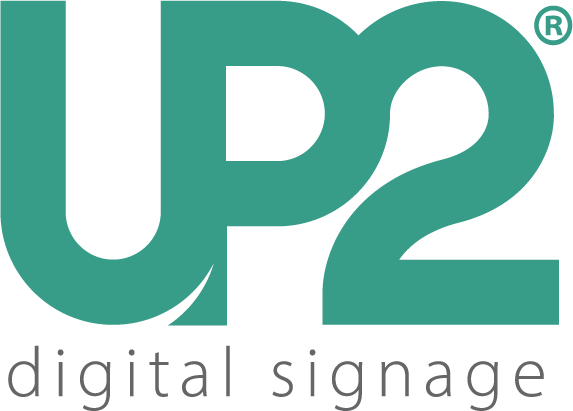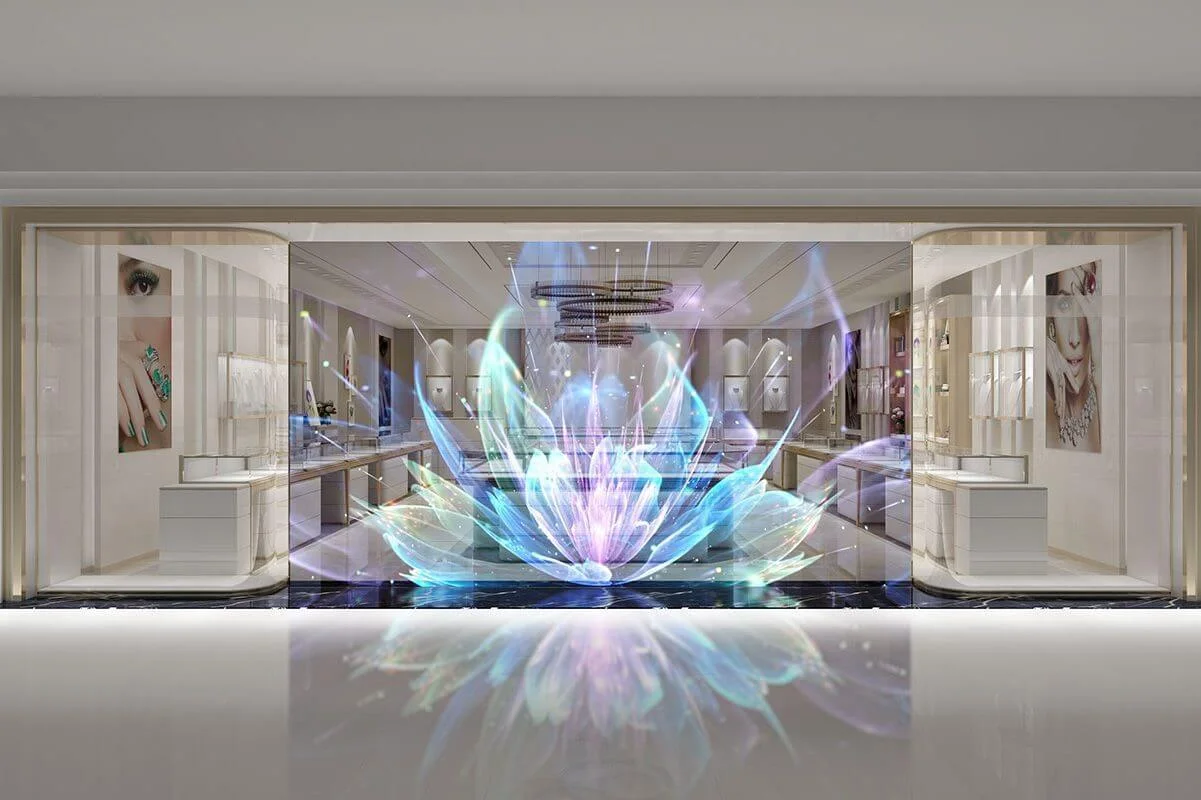LED vs LCD vs Projection – Which Is Right for Your Business?
Introduction
Every business today depends on visual communication—whether it’s a retail façade, a control room, or a corporate presentation space. Choosing the right display technology isn’t about “which is newest,” but which fits your environment, brightness needs, and operating hours.
In this guide, we compare LED, LCD, and projection systems from a technical and operational perspective, with real-world insight from the UAE’s demanding climate.
1. How Each Technology Works
| Type | How It Works | Key Strength |
|---|---|---|
| LED (Light-Emitting Diode) | Thousands of individual diodes form the image directly—no backlight or projection. | Seamless scalability, extreme brightness, long life. |
| LCD (Liquid Crystal Display) | LED backlight passes through liquid crystals and filters. Each panel is a fixed size. | Sharp color accuracy at short distance, low entry cost. |
| Projection (DLP/Laser/LCD) | Light is projected onto a reflective surface or screen. | Portable, large temporary images, lower initial cost. |
2. Technical Comparison
| Feature | LED Display | LCD Panel | Projector (Laser / DLP) |
|---|---|---|---|
| Brightness (nits) | 800 – 10 000 + | 400 – 800 | 1 000 – 3 000 (≈ 300–600 nits on surface) |
| Contrast & Color | High HDR / Deep Black | Very Good | Moderate – depends on ambient light |
| Refresh Rate | 3 840 – 7 680 Hz (High) | 60 – 240 Hz | 60 – 120 Hz |
| Lifespan (hours) | Up to 100 000 | 40 000 – 60 000 | 15 000 – 30 000 (laser) |
| Energy Use | Medium–High (> 400 W/m²) | Low | Medium |
| Maintenance | Module / power replaceable | Entire panel replacement | Bulb / filter cleaning |
| Scalability | Modular – any size / shape | Fixed panels – limited | Large size but fixed throw |
| Outdoor Use | ✔ Weatherproof options | ✖ | ✖ |
| Typical Cost Range (USD / m²) | 1 500 – 5 000 + | 400 – 1 000 | 500 – 3 000 (per device) |
3. Fine-Pixel LED Displays
Modern COB (Chip-on-Board) and MicroLED technologies now achieve sub-millimeter pitches—as small as P0.6 or P0.4 mm—offering cinema-grade clarity and true HDR color.
Fine-pixel LEDs are ideal for corporate boardrooms, studios, and digital cinemas, where viewers sit close and uniform contrast is essential.
-
Brightness: 800–1200 nits (optimized for indoor)
-
Resolution: Full HD to 8K possible on medium sizes
-
Lifespan: ≈ 100 000 hours
-
Limitation: High cost and requires stable AC / temperature control
4. Strengths and Limitations by Technology
| Factor | LED | LCD | Projection |
|---|---|---|---|
| Image Uniformity | Seamless wall, no bezels | Panel bezels visible | Dependent on screen flatness |
| Ambient Light Performance | Excellent – high nits | Moderate | Poor in bright rooms |
| Operating Hours | 24/7 ready | 16/7 typical | Event / occasional |
| Outdoor Suitability | Fully rated (IP65+) | Indoor only | Indoor only |
| Upgradability | Modular / extendable | Replace unit | Replace projector |
| Viewing Angle | 160° + | 130 – 150° | 100 – 120° |
| Climate Durability (UAE) | Excellent if sealed | Sensitive to heat | Requires cool indoor use |
5. Real-World Considerations in the UAE
High ambient temperature, dust, and humidity accelerate component wear.
-
LED modules built for outdoor UAE use include conformal coatings, high-temperature ICs, and heat-dissipating aluminum chassis.
-
LCD panels suffer from backlight discoloration and polarizer peeling under prolonged heat.
-
Projectors require clean, cooled environments—filters clog rapidly in dusty air.
For screens exposed to direct sunlight or 24/7 operation, LED remains the only long-term sustainable solution.
6. Application Matrix – Which to Use Where
| Environment / Use Case | Recommended Display | Notes |
|---|---|---|
| Shopping Mall Facade / Outdoor Advertising | LED (P4–P10) | High brightness + weatherproof |
| Retail Store / Lobby Video Wall | LED (P2–P3) or LCD 1.8 mm bezel | LED for seamless look; LCD for budget |
| Boardroom / Corporate Theater | Fine-Pixel LED (P0.9–P1.5) or LCD 4K | LED offers no bezels and HDR depth |
| Cinema / Auditorium | Fine-Pixel LED with Dolby Vision | True contrast and lifetime value |
| Control Room / Broadcast Studio | P0.9–P1.5 LED | Continuous operation and calibration |
| Event / Conference Hall | Laser Projector or Rental LED | Projector for temporary; LED for permanent |
7. Cost vs Lifetime Perspective
While projectors and LCDs have a lower starting price, they typically require complete replacement every 3–5 years.
LED displays, though higher in upfront cost, offer up to 100 000 hours of service with module-level repair—making their total cost per hour of use the lowest over time.
8. Summary – Quick Decision Guide
| Priority | Best Choice | Reason |
|---|---|---|
| Maximum Brightness / Outdoor Use | LED | Sunlight-readable, IP65+ rated |
| Seamless Indoor Video Wall | LED | No bezels, modular design |
| Short-Range Display / Budget | LCD | Good color and low initial cost |
| Temporary Large Image | Projection | Portable and cost-effective |
| Long-Term Operation / 24 × 7 | LED | Designed for continuous duty |
| Fine-Detail / Cinema Quality | Fine-Pixel LED | HDR depth and precision |
Conclusion
Each display technology has its place.
-
Projection fits short-term and low-light installations.
-
LCD serves budget indoor networks and digital signage.
-
LED—especially modern fine-pixel and MicroLED systems—offers the most scalable, weather-resistant, and future-proof solution for businesses operating in the UAE’s high-temperature, high-duty environments.
Selecting the right technology means balancing clarity, cost, and operating conditions, not just specification numbers.
UP2 helps clients analyze every parameter—from brightness and pixel pitch to maintenance and power—to ensure each screen performs flawlessly for years.
References
-
Novastar – LED Display Control System Knowledge Base
https://www.novastar.tech -
Colorlight – LED Display Technology Guides
https://www.colorlight-led.com -
LEDinside (TrendForce) – Display Market and Technology Reports
https://www.ledinside.com

